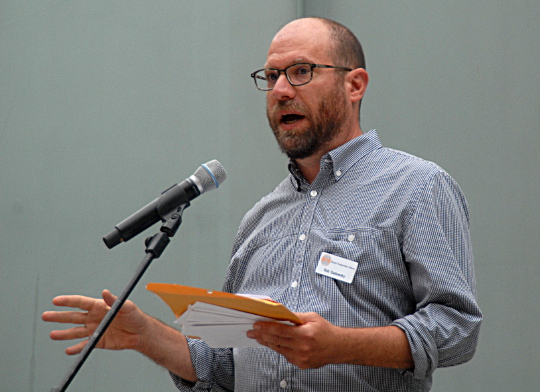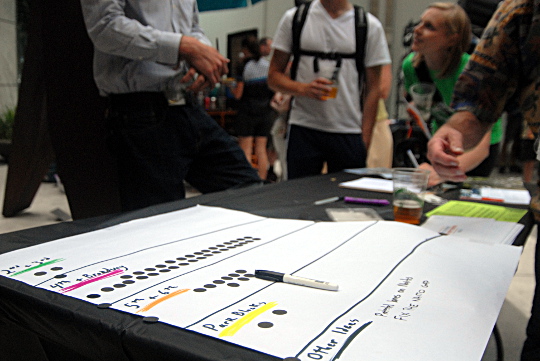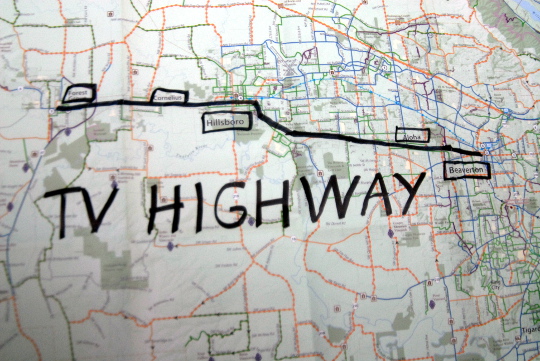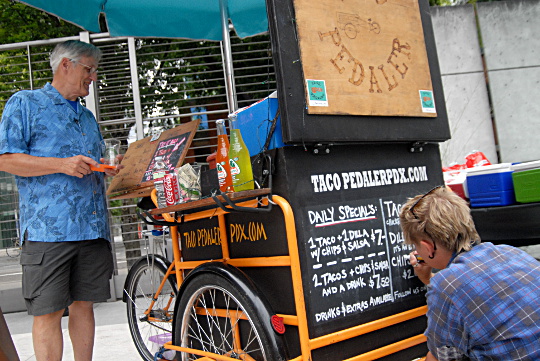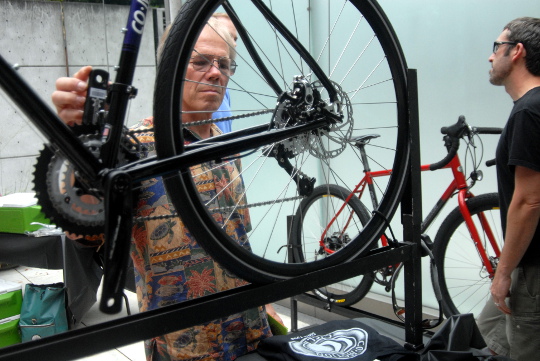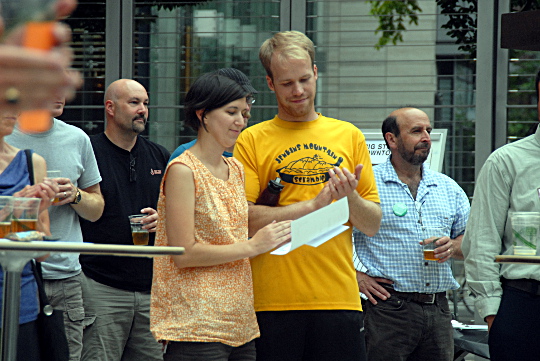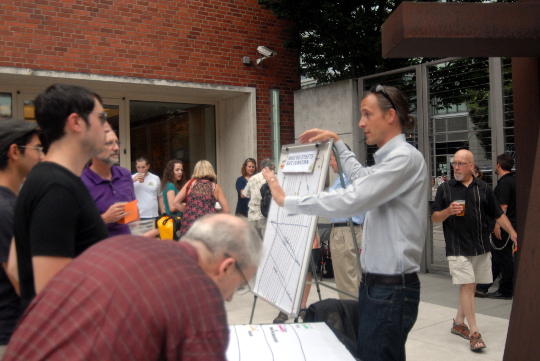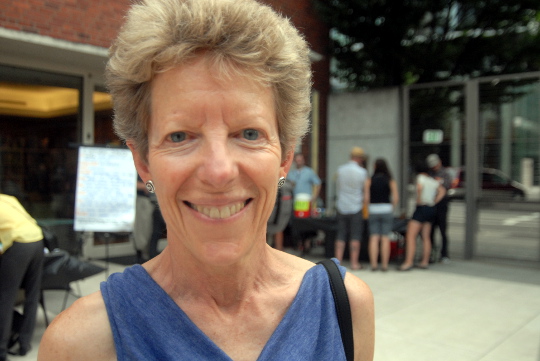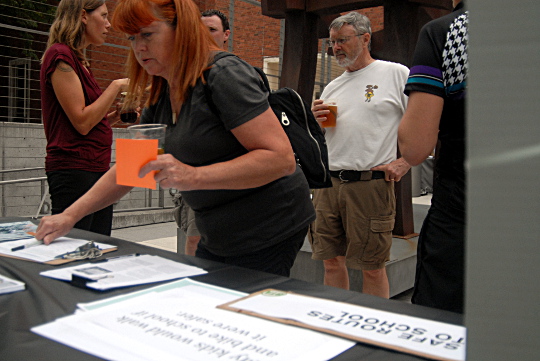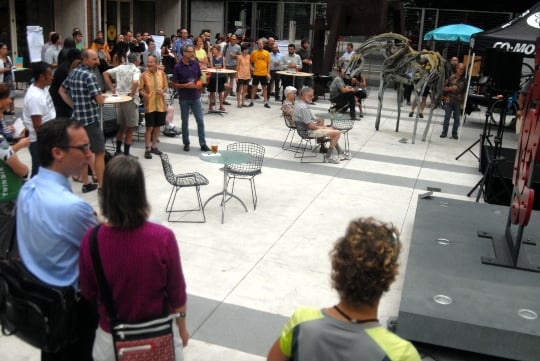
(Photos by Michael Andersen)
With “The Revolution will Not Be Televised” playing from portable speakers above them, almost 100 Bicycle Transportation Alliance members and staff gathered in the Portland Art Museum courtyard Thursday to drink Hopworks beer, eat food-cart tacos, recognize key volunteers and (most intriguingly) learn about the five major advocacy campaigns the organization had just launched.
The BTA’s goal is “to make not just Portland but the Portland metropolitan region the best place to bike in the country,” Executive Director Rob Sadowsky said.
The five simultaneous campaigns — for infrastructure in east Portland, inner Northeast, downtown Portland and Washington County and for metro-area funding of Safe Routes To School instruction — are products of four months of strategizing by BTA staff, Sadowsky said.
The fundamental change in Portland’s bike-infrastructure progress a few years ago, Sadowsky said in an interview, is that “federal money dried up.” The BTA’s campaigns look to a combination of federal, state, local and metro-area funding sources to pay for four pieces of sophisticated bike infrastructure, all of them designed to appeal to people who are “interested but concerned” about the safety and comfort of bike transportation.
One, probably the lowest-cost at about $2,290.000 in all, would be a set of 12 miles of mostly east-west neighborhood greenways, east of Interstate 205, connecting neighborhoods to the Green Line MAX and 205 bike path.
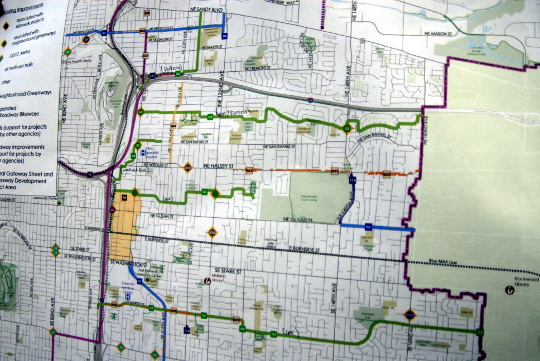
Another would be an attractive 2.5-mile protected bike lane between the Hollywood neighborhood and Broadway Bridge, along Broadway or perhaps Broadway and Weidler.
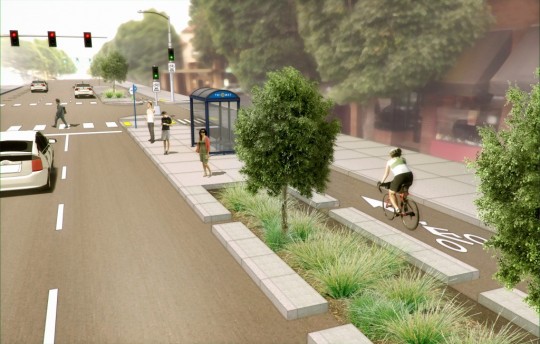
The third project would be one of four possible north-south protected bike lane couplets through downtown: 4th/Broadway; 2nd/3rd; 5th/6th (using traffic diverters to replace the car lanes on the transit mall with bike-only lanes); and the Park Blocks. Members voted for their route preference. (BTA Advocacy Director Gerik Kransky, who is leading this campaign, said he was unabashedly making the case for 4th/Broadway because it would connect to existing routes and destinations north and south.)
This project is already funded by Portland City Council to the tune of $6.6 million, but Kransky said it would still face a mix of political opposition and support before being installed. He said part of the BTA’s goal is to ensure that as much of the money as possible will be dedicated to infrastructure rather than just planning.
The fourth project, by far the biggest in scope, would be a combination of protected bike lanes or off-street trail segments alongside 16 miles of the Tualatin Valley Highway through Washington County.
The BTA’s fifth campaign focuses on education and culture rather than infrastructure: it would allow a new metro-area tax to pay for in-school bike safety education.
There’s a lot more to write about all of these concepts, of course. Next week on BikePortland, we’ll be devoting one post to each of these to learn a little more about their possible benefits, the hurdles to getting them approved, the risks along the way and the BTA’s strategy for getting each of them approved.
Advertisement
Thursday’s meeting was also, of course, a fun get-together for friends, acquaintances and allies. Here are some more photos and conversations from the event:

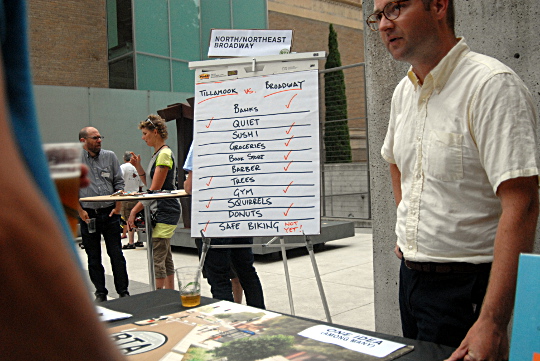
BTA member Lee Younglove was one of many attendees who said he was attending the member’s meeting for the first time.
“This year, I decided to pull away from other things and focus more on this,” he said. “It’s fun and there’s a lot of young, energetic forward-thinking enthusiasm. … The more I walk or bike around Portland, the more I realize how glad I am to have chosen to keep living here.”
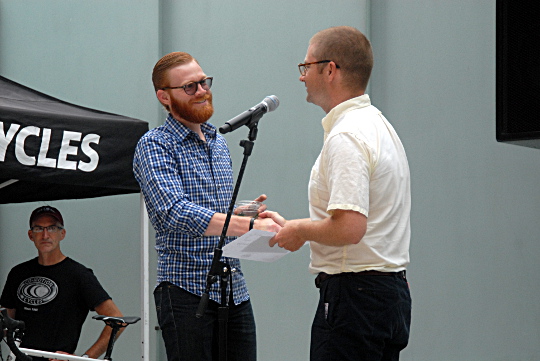
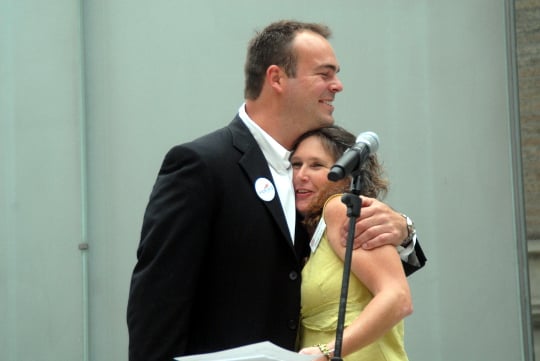
BTA member Cynthia Chilton said she supports the organization greatly but was one of a few members who brought up a discussion this week in the BikePortland comments section about the possibility of creating a second, more confrontational advocacy organization to complement the BTA.
Chilton’s view on that organization differed somewhat from the one I’ve heard others talking about. She thinks a second organization would be likely to focus on vehicular cycling, the philosophy that bike traffic should be treated like auto traffic rather than separated from it, whereas the BTA would focus on increasing biking among the “interested but concerned.”
“It’s not about being in your face all the time,” she said. “It’s not about Critical Mass. But sometimes people need to get in your face.”
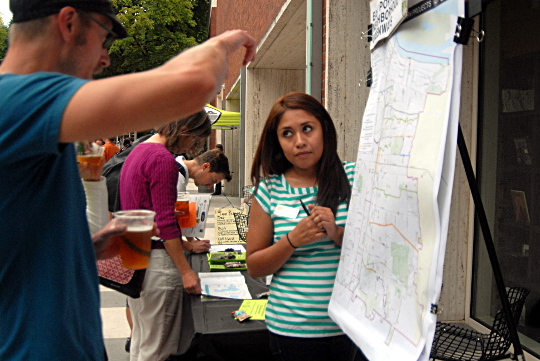
Correction 3:40 pm: An earlier version of this post gave an incorrect estimate of the cost of the east Portland neighborhood greenway plan. Also, it incorrectly identified a song that was playing and misidentified the role of Chris Achterman on the BTA’s board.

